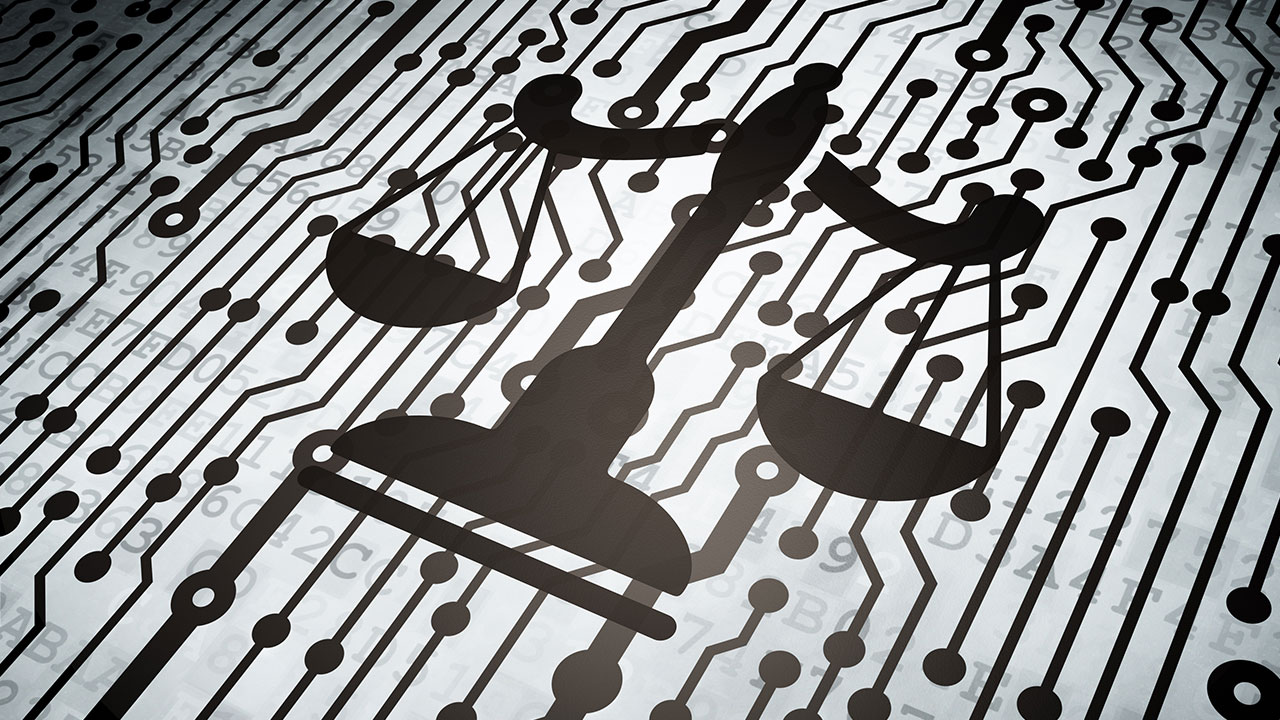
Legal Tech – potentials and applications
- Project team:
Sonja Kind (Project Manager), Kai Priesack, Jan-Peter Ferdinand
- Thematic area:
- Topic initiative:
Committee on Education, Research and Technology Assessment
- Analytical approach:
TA project
- Startdate:
2017
- Enddate:
2019
sprungmarken_marker_2020
Subject and objective of the study
The digital transformation of professional consulting and services in the finance and insurance sector is already at an advanced stage and now is also spreading to the legal sector – referred to as Legal or Law Tech. Legal Tech (short for Legal Technology) generally refers to the use of technologies for legal consulting ranging from simple, platform-based support (tele-lawyer) to partly or fully automated solutions using big data analytics and approaches of machine learning. In the future, the capability to map, analyse and interpret legal data will account for an ever increasing share with regard to the scope of work in law firms. Currently, high dynamics regarding the development of new business models and the creation of Legal Tech companies focusing on legal consulting and legal services can be observed. Companies such as e.g. Coduka GmbH (»Geblitzt.de«), Flightright GmbH (»Flightright«) or Kira Systems Inc. (analysis software »Kira«) offer smart software solutions or IT-based services thus entering fields of application in the legal sector.
The brief study provided an overview of Legal Tech services and applications. Moreover, based on expert interviews, it was discussed which legal aspects and issues of consumer protection and data privacy are affected by activities of Legal Tech. An international mapping of Legal Tech start-ups helped to determine which fields of application of Legal Tech are most characterised by market and start-up dynamics. Furthermore, the current debates with regard to Legal Tech were analysed in order to assess the potentials, risks and opportunities involved and to further explore potential needs for action.
Key results
Legal Tech offers a wide range of applications. Basically, there are two fields of application that can be distinguished according to their primary target group of customers: solutions and business models for private legal services (business-to-consumer, B2C) as well as applications for business consultancies and corporate lawyers (business-to-business, B2B). In addition to the main target groups of private and business customers, areas of jurisdiction and dispute resolution constitute another future context of application.
In the field of private legal services, Legal Tech provides consumers with a new and more effective access to justice, i.e. better ways of enforcing their legal claims against third parties. Legal consulting products in the consumer sector include services provided by companies that specialise in the enforcement of claims, e.g. claims for compensation in connection with delays in various means of transport, for example for rail or air travellers. Moreover, there are services e.g. for legal support with regard to tenancy law, for the avoidance of fines in traffic offences or for the cancellation of subscriptions. For business consultancies and corporate lawyers, Legal Tech applications are particularly relevant in the form of specific technical aids. The use of Legal Tech in large law firms and legal departments shows typical patterns of the digital transformation. Here, as in many other markets for digital solutions, technological change is taking place rather gradually than disruptively. Compared to other sectors and disciplines, the legal profession – especially in small and medium-sized law firms – does not yet seem to be optimally prepared for technological change and its implications for the market for professional legal services.
Although jurisdiction and dispute resolution have not yet been key applications of Legal Tech, solutions based on these aspects can – as a matter of principle – also support work in court. The spectrum of possible applications is broad and ranges from electronic file management to the automated processing of uniform disputes.
With regard to start-up and investment dynamics, it can be seen that not only the number of start-ups and rounds of investment in the B2B sector is significantly higher than in the B2C sector, but also the average investment volume. In the long term, Legal Tech companies will increasingly try to serve the market for higher amounts in dispute within the framework of technological and legal possibilities and thus enter into predatory competition with specialised small and medium-sized law firms.
Fields of action derived from the potentials and impacts arise primarily with regard to competence development, adaptation of regulatory framework conditions and consumer protection. In addition, further research is needed to fully assess the disruptive potential of new technologies with regard to the provision of legal services.
Publications
Kind, S.; Ferdinand, J.-P.; Priesack, K.
2019. Büro für Technikfolgen-Abschätzung beim Deutschen Bundestag (TAB). doi:10.5445/IR/1000131254
Kind, S.; Ferdinand, J.-P.; Priesack, K.
2019, June. Büro für Technikfolgen-Abschätzung beim Deutschen Bundestag (TAB)
Kind, S.; Ferdinand, J.-P.; Priesack, K.
2019, June. Büro für Technikfolgen-Abschätzung beim Deutschen Bundestag (TAB)
Bogenstahl, C.; Ferdinand, J.-P.
2017. Büro für Technikfolgen-Abschätzung beim Deutschen Bundestag (TAB). doi:10.5445/IR/1000133626
